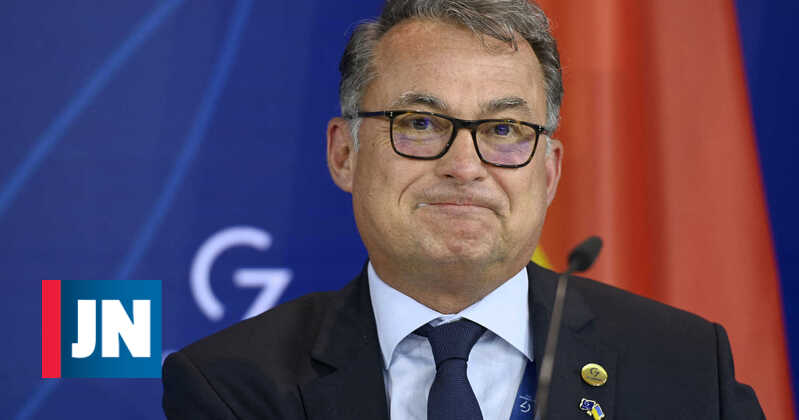The head of the Bundesbank, Joachim Nagel, opened the way on Sunday to raise new “big” interest rates in the eurozone, in the face of rising inflation and the threat of recession.
Today, quoting Agence France-Presse (AFP), Joachim Nagel said that the “step taken on Thursday” by the European Central Bank to raise the key interest rate by 0.75 points “is an important sign”.
He warned that “if the inflationary situation remains as it is, other important steps must be taken”, speaking of the existence of “indications that show that inflation is spreading in many areas” of the economy.
The head of the Bundesbank estimated that Germany’s inflation rate could reach a level of “above 10%” within a year in December, a period that, in his opinion, should constitute the current inflation peak.
The Frankfurt-based bank has only indicated an expectation of 10% inflation in the final months of the year, thus exacerbating its forecast.
According to Joachim Nagel, quoting AFP, inflation is expected to slow in 2023, but it will remain “above 6%” next year, a “very high” level.
Under these circumstances, the German official said, a continued tightening of the cost of credit in the eurozone is inevitable, despite the negative impact this policy may have on economic growth.
The head of the German Central Bank considered that it is “possible” that Germany, the largest economy in Europe, will enter a recession in the third and fourth quarters of this year, and will remain so at the beginning of next year.
“There are a number of elements” that hint at this scenario, said Joachim Nagel.
The European Central Bank, whose main task is to ensure price stability in the eurozone, targets an inflation rate of 2%.
The institution headed by Christine Lagarde decided on Thursday to make the largest ever increase in interest rates, warning the French official that other increases would follow.
The Board of Governors of the Monetary Corporation decided to increase its monetary policy rates by 75 basis points, the first in two decades of existence, except for a technical adjustment in 1999.

“Wannabe internet buff. Future teen idol. Hardcore zombie guru. Gamer. Avid creator. Entrepreneur. Bacon ninja.”

